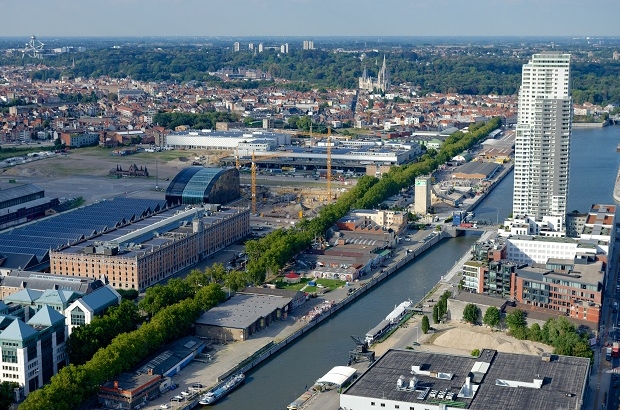- Daily & Weekly newsletters
- Buy & download The Bulletin
- Comment on our articles
Brussels is ninth most expensive European capital to build in
Brussels is the ninth most expensive capital in which to build in Europe and 45th worldwide, according to the latest International Construction Costs Index by engineering firm Arcadis.
The study compared 100 cities worldwide, including 20 European capitals. London topped the list for both Europe and the world.
At 45th worldwide, Brussels is more expensive to build in than cities such as Amsterdam, Rome, Rio de Janeiro, Beijing, Melbourne and Dubai.
Within Europe, London, Oslo, Copenhagen, Dublin, Stockholm, Paris, Vienna and Berlin are pricier capitals for construction.
Brussels has actually fallen in the index, but mainly due to sharp cost increases in British and American cities. Still, it is more expensive to build in Brussels today than it was a year ago with construction costs rising 5.2%, in line with other European countries.
Belgian construction market predicted to slow down
The Belgian construction market was booming throughout 2021 when output grew by 7%, according to Eurostat data.
But Arcadis said this recovery came at a cost, and limited access to construction materials, including steel and timber, has caused many delays. Even though these materials are now more readily available, prices for them remain high.
“Belgium’s last major infrastructure construction boom took place in the 1970s,” said Ann Van Melkebeek.
“Today, the latest initiatives to improve Belgium’s cities and networks will need to integrate sustainable thinking focused on minimizing the use of materials. This will keep costs and environmental impacts under control.”
Arcadis says that in the aftermath of 2021’s issues, many projects are now focusing on programme recovery and minimising further overruns.
“On existing projects, contractors are exposed to increased costs that exceed the value of contractually defined inflation adjustments. For new projects, inflationary pressures and increased risk premiums affect viability.”
Growth in Belgian construction markets is expected to slow over the next couple of years, according to Eurostat forecasts. They project 2% growth in 2022 and 1% in 2023.
“Moderate growth will take away some pressure from price inflation but will not eliminate all input cost pressures associated with labour and materials,” warned Arcadis.
“In particular, mega projects, including the €3.35 billion Oosterweel ring road project in Antwerp will create even more competition for resources over its 10-year duration."



















